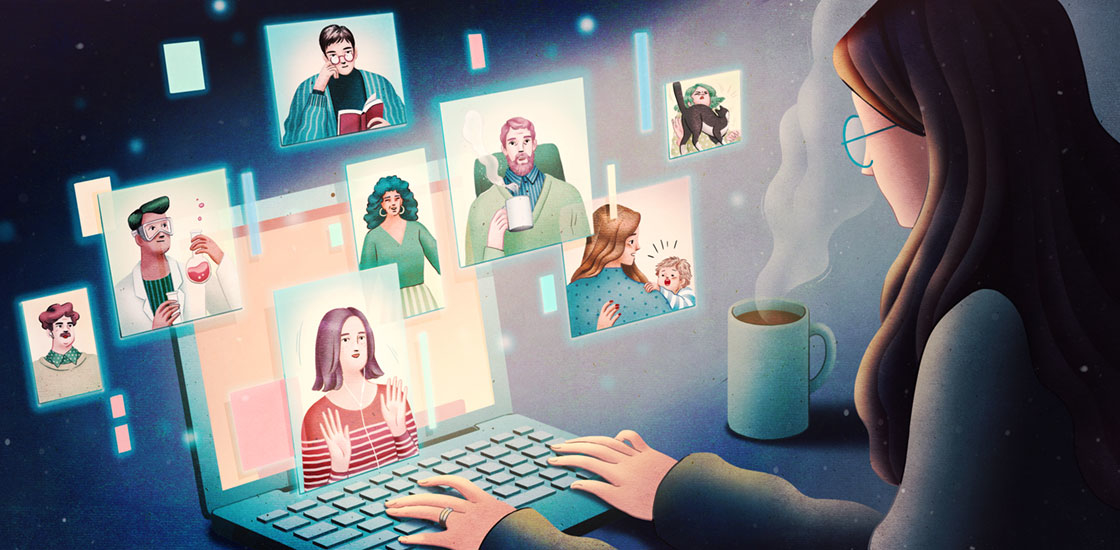How to run a lab from home during a pandemic
While much of the world’s operations have sputtered to a halt, some labs have found ways to keep science moving forward.

In early March, my colleagues and I heard that our research institute, in Klosterneuburg, Austria, would soon shut down to help slow the spread of coronavirus. We immediately suppressed the impulse to panic and accepted the imminent closure as an appropriate public-health decision in light of the pandemic.
However, I soon received emails from lab members worried about their ongoing and upcoming experiments. A tone of heightened alertness pervaded administrators’ and faculty’s emails about how to deal with this profoundly new situation.
We revived our lab’s Slack channel and started brainstorming activities we could do from home. For several days we scurried to reorganize and secure many experiments so they could be resumed at a later date. By the time we found ourselves confined to our homes for an indefinite period of time, we had managed to require only a select number of lab members to maintain the most urgent lab routines.
Our physical transition to working from home and managing our lab remotely was just the beginning. To succeed, we next had to figure out how to function as individuals and as a group under these completely new conditions. I thought hard about how my lab members and I could best support our community while also continuing to do what we do best — science.
While much of the world’s operations have sputtered to a halt, we have evolved and made changes that have allowed our lab to keep moving our science forward.
Virtual meetings:
At 6:30 p.m. on Day One of the shutdown, I inaugurated the most important measure: a lab aperitif on Zoom. From that day forward, I have sent a daily invitation to my group to take part in this voluntary 30-minute ritual. The gathering’s only rule is to bring a drink.
The fixed meeting time was meant to defend against social isolation, particularly for those who live alone or have recently moved to Austria. But it has proven valuable for all of us.
Our discussions often center around feelings and experiences related to our quarantined condition, some of them not so pleasant. But we have also noted unforeseen benefits.
For instance, we have realized that being stuck at home allows more time for cooking healthy food, practicing yoga and staying in touch with others, at least by phone or online.
During lab aperitif discussions, we agreed on a few additional measures. At virtual lab meetings, we now present ‘chalk talks’ with real-time illustrations rather than PowerPoint slides. We are predominantly an experimental lab, so work-in-progress seminars are now short on new data. Some lab members have shifted to computational analyses to develop new projects.
Writing focus:
As Eve Marder put it in a feature article in eLife, “clear writing is the key to success.” So, with no experimental work taking place in the lab, we plan to dedicate time to practicing our written expression, which is particularly useful in our lab of mostly non-native English speakers. Working in pairs, one person writes a short piece of text daily and their partner edits it. We plan to hold online feedback sessions.
Some lab members have data to analyze or papers to write; those who do not plan to focus on reorganizing the lab’s protocols and databases. Others are translating and summarizing recent research on COVID-19 for time-strapped physicians in Italy who require timely updates.
With schools and daycare facilities closed, lab members with children, including me, have additional new challenges. Now we have children at home who need our support with their ongoing schoolwork and to compensate for the sudden loss of their social contacts. I realize that my days are less structured around work, with more switching between work, children, cooking and housework. We therefore need to be more flexible to support families with children in additional ways. The Institute of Science and Technology, for example, has implemented online experiments that can be done at home. These activities can be both fun and educational — and provide more contact and quality time with family members in times of elevated stress.
Ultimately, our goal is not only to protect our lab members and use this lockdown in a productive manner. We also hope to come back stronger as a lab once the quarantine is lifted.
While we try to keep our lab members and trainees engaged and to support them in various ways, one fundamental aspect of our response to this emergency is to keep doing science. Science is not just part of the equation. Science is the solution.
Gaia Novarino is professor of neuroscience at the Institute of Science and Technology in Klosterneuburg, Austria.
Recommended reading

Expediting clinical trials for profound autism: Q&A with Matthew State

Too much or too little brain synchrony may underlie autism subtypes
Explore more from The Transmitter

This paper changed my life: Shane Liddelow on two papers that upended astrocyte research
Dean Buonomano explores the concept of time in neuroscience and physics

